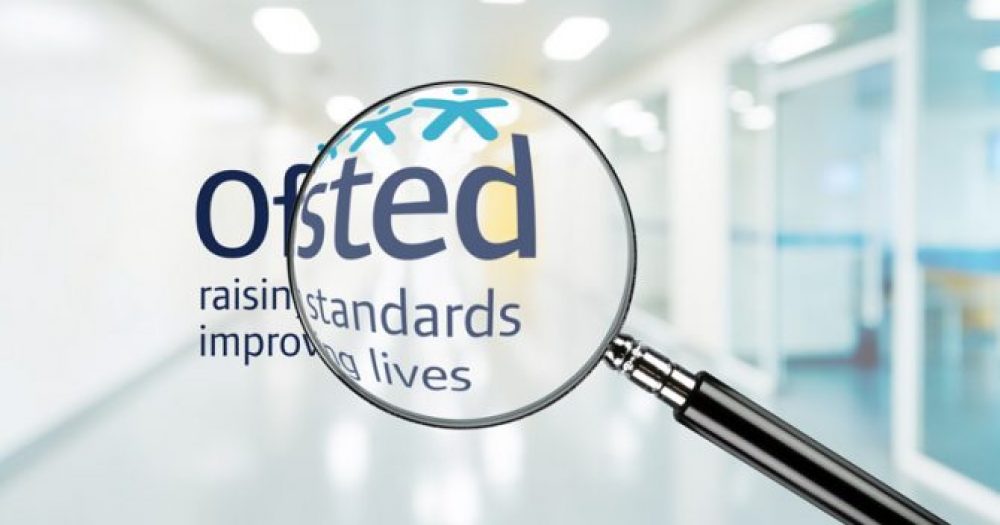Ofsted has today published its annual stocktake of education for the 2020/21 academic year, which saw inspection activity mostly put on hold due to Covid-19.
But reflecting on the year, the watchdog says the further education and skills sector was hit “particularly hard” by the pandemic.
“Many apprentices found themselves furloughed, or out of work altogether and the number of learners experiencing significant mental health problems or safeguarding concerns increased”, according to Ofsted.
While the report mostly provides commentary about the past year, it does also repeat some statistical analysis of the little inspection activity that did take place, which FE Week was first to report last month.
Here are the key findings for FE and skills from today’s report…
Apprenticeships ‘curtailed and job prospects limited’
Ofsted has shone a light on the “significant disruption” that Covid-19 caused to most students, particularly apprentices and those studying courses with a practical element.
Many “were not taught the practical skills and knowledge required to progress or succeed at the next stage” as provider and college doors closed during lockdown.
Apprenticeships and courses linked to the sectors hardest hit by the pandemic, for example retail, customer service, childcare and health and social care, were “least likely to be running fully”.
Ofsted says reasons for this varied. “For example, in some courses, learners had still not returned from furlough or learners were on a ‘break in learning’, and in other courses, employers were not taking on new work placements due to economic uncertainty or because of health and safety concerns.”
Some apprentices were unable to finish their course because they had been furloughed, their employer had ceased trading or because of Covid restrictions. Others had been delayed in completing their end-point assessment (EPA) as increased work demands meant they did not have time to focus on their apprenticeship. Some EPAs were cancelled, which led to a “sizeable backlog” in the system.
Around 80 providers that delivered apprenticeships lost their funding or closed during the year.
‘Disjointed’ curriculums surfaced
Ofsted says many colleges and adult community education providers assessed learners at the beginning of the autumn term to establish any gaps in their knowledge following the summer lockdown.
They then used this information to change curriculum content. Providers identified gaps in English and mathematics and in practical skills for apprentices, for example.
For “some”, having to “reorganise assessment and teaching due to restrictions, along with meeting learners’ different needs”, led to learning becoming “disjointed and the logical sequencing of the curriculum being disrupted”, inspectors found.
“This is likely to have hindered learners from developing and embedding new knowledge and skills.”
Heightened concern for learners’ safety and wellbeing
Providers reported to Ofsted that the number of learners with significant mental health problems had increased during the pandemic.
The watchdog’s report does not provide any data about this but says inspectors heard of increases in safeguarding concerns such as domestic abuse, county lines, knife crime and larger numbers of families experiencing destitution or needing to access foodbanks.
“Many” leaders referred more learners to local mental health, safeguarding or early help teams during the year.
Learners with high needs ‘severely affected’
Senior leaders in independent specialist colleges for learners with high needs, and in other providers that run supported internships, told Ofsted they are unlikely to see a “rapid restoration” of work placements and activities designed to promote independence for their learners. Many of these placements were run with the support of small businesses and charities that have closed during the pandemic.
Many learners with high needs found online learning “more difficult” and it was also “challenging” for providers to offer them an individualised curriculum.
Additionally, learners’ behaviour was “severely affected by the circumstances of the pandemic”. They “found it hard to talk to inspectors and were not able to work with other learners”.
Adult participation rate dropped substantially
Ofsted said that in the first national lockdown, between March and July 2020, the numbers of adults participating in learning declined by 44 per cent.
The overall adult participation rate declined by a further 11 per cent between August 2020 and April 2021.
Ofsted said this was due to a combination of venue restrictions, other learners being “prioritised”, the reluctance of some to return to face-to-face teaching and the difficulties some learners had accessing remote learning platforms.
And in many instances, the number of adult learners was low because job centres had only just reopened and begun mandating them to go on courses again.
Prisoners unable to leave their cells to learn
This year, Ofsted was unable to carry out routine inspections of prisons and young offender institutions but was able to carry out a number of remote interim visits and face-to-face provider monitoring visits.
Ofsted found that opportunities for prisoners to take part in classroom education stopped. Many prisoners were limited to in-cell work packs, with little feedback from teachers. In some prisons, these were not available until up to six months after the first national lockdown started in March 2020, meaning there was no education to speak of until September 2020.
Some prisoners told inspectors that, without a tutor to help them while working through the packs, they had to “turn the page” if they came across something they could not do. They found this “frustrating and demotivating”.
In September, Ofsted launched a prison education review with HM Inspectorate of Prisons.
Just 44 full inspections were carried out
During 2020/21, full inspections were only able to take place during the last three months, between June and August.
All of these were to independent learning providers, including employer providers, that had not previously been inspected.
Of these, four were judged ‘outstanding’, 26 were judged ‘good’, 12 received ‘requires improvement’ and two were judged ‘inadequate’.
But almost 230 new provider monitoring visits were conducted
In between the national lockdowns, Ofsted continued with new provider monitoring visits as these were “deemed to be the highest priority”.
Of the 229 visits carried out in 2020/21, just over three quarters (76 per cent) were judged to be making at least ‘reasonable progress’ in all themes. Ofsted said this was unchanged from 2019/20.
The watchdog judged 19 per cent to be making ‘insufficient progress’ in at least one theme, however – a judgement which typically triggers the Education and Skills Funding Agency to suspend the provider from starting new apprentices.

















Your thoughts